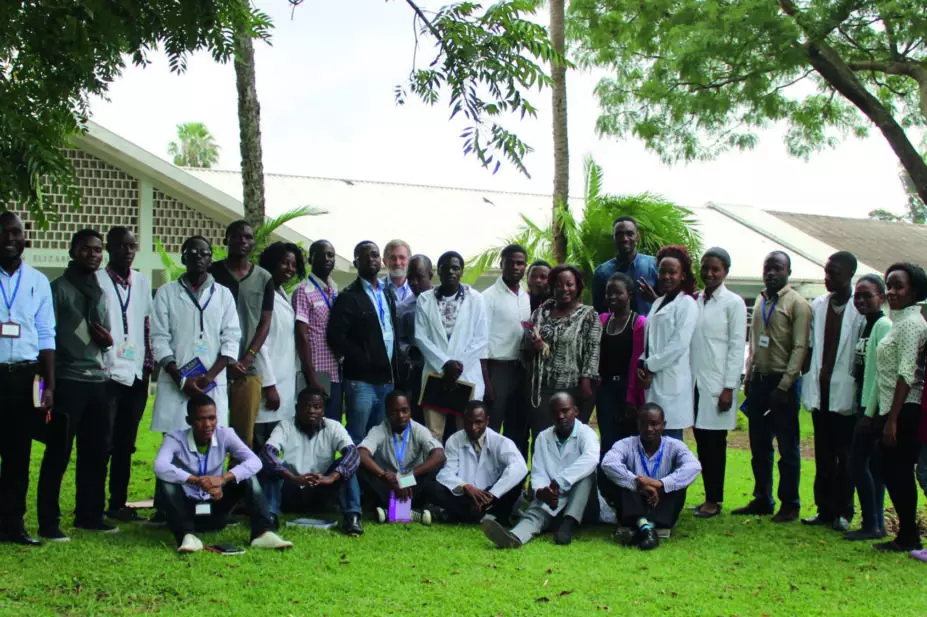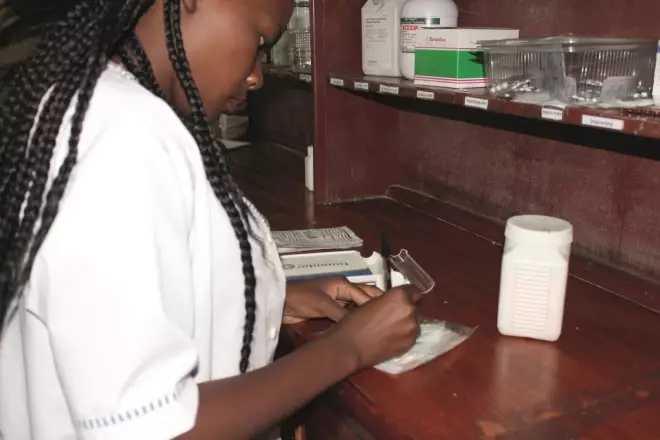
Courtesy of David Scott
I retired from UK pharmacy in 2016, and now I am teaching in the pharmacy department of the University of Malawi, southern Africa, having previously taught pharmacy in Kenya and travelled in more than 50 countries. Teaching in Malawi is different.
From arrival, it was obvious that this is a poor country with significant need. Malawi – famed for Dr Livingstone’s anti-slavery exploits and the third-largest lake in Africa – is one of the most beautiful, but most poor and unhealthy, countries in the world. It ranks 170th out of 174 in the World Health Organization lifespan tables; 88% of the population live on less than £2.40 per day; and 50% are below the poverty line. I could go on, but it is more important to ask what can be done for the young (the median age is 16 years compared with the UK’s 40 years) and friendly people of Malawi, who are liable to die prematurely from treatable diseases?
The answer is the development of a healthcare system with a good supply of professionals, including pharmacists. The Malawian pharmacy degree is 10 years old, but there are still only around 200 pharmacists in the country – for 17 million people. There are probably fewer than 10 pharmacists in the country’s hospitals, including just two, both qualified for only one year, in the 1,200-bed major teaching hospital in Blantyre. Most hospitals don’t have access to a pharmacist, and use their annual drug allocation in six months. And much of the population does not have access to a pharmacy in their community.

Source: Courtesy of David Scott
A pharmacy student in the Queen’s hospital outpatient dispensary, Malawi
We need many more pharmacists, and that means we need more students, but lack of money is a major barrier to training. University fees recently increased sixfold to about £380 per year, which may not sound much to students in the UK, but the fee is more than double Malawi’s legal minimum wage – an income that many families do not achieve, to cover even their basic needs. It would be like British students forking out about £40,000 per year and then having to pay for accommodation, food and learning materials.
At the University of Malawi, photocopying a day’s lecture handouts is so expensive that it costs more than eating a meal in the canteen, so some students make that their choice. Laptops are so expensive that students may use a telephone to read their notes in the daytime, and type their assignments on another student’s machine in the middle of the night. It’s not just boring lectures that send them to sleep in the classroom.
Older students support younger ones through their own mini-organisation called Phuka (‘green shoots’), which rallies support, provides food, and gives training in entrepreneurship, so that they can earn money while studying. Phuka is a great example of mutual help, but it does not meet all the students’ and the healthcare system’s needs.
Around 89% of Malawian healthcare is provided through donors, and many organisations could be supported by British pharmacists. You may not be able to replace our one and only worn-out MRI scanner, but any help to build up the pharmacy profession through charitable organisations would be greatly appreciated, and would make a major and lasting impact on the health of Malawi. One such organisation is Medic to Medic (medictomedic.org.uk) – I have no personal connection to the group but can testify to the benefit of their work. They make targeted donations to the poorest students across the health professions to enable them to complete their studies. Medic to Medic currently funds our top student, and a teaching colleague of mine qualified only because he was afforded a grant when he was a student. Small gifts can have a big impact, and I would encourage anyone to invest in the health of this nation.
You may also be interested in

Calling the shots: the pharmacists combatting vaccine misinformation

Embedding quality improvement in pharmacy practice: a departmental strategy at University Hospitals of Derby and Burton
